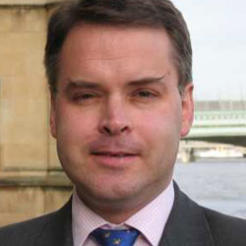Kids Company chief executive Camila Batmanghelidjh was the Conservatives’ “Big Society poster girl” and ministers were powerless to prevent her getting public funding, former children’s minister Tim Loughton told MPs today.
In a revealing testimony before the Public Administration and Constitutional Affairs Committee this morning, Loughton described how special advisers and other officials from Number 10 leant on him to ensure Kids Company received money, even though he had serious concerns about the charity’s effectiveness.
Loughton was a children’s minister in the Department of Education during 2011 and 2012 when Kids Company was awarded more than £8m – almost a third of all the funding available in that particular programme.
He told the committee that he had concerns about the outcomes being achieved by the charity and resisted making a direct grant to it, but was unable to resist pressure to award it money in the competitive grants round.
He said funding submissions sent to him by civil servants often came with disclaimers warning that Camila had contacts in the media who could write stories that would be “uncomfortable” for the government if funding were to be refused.
And letters from Camila about the charity’s funding were always copied in to people with close connections to Number 10, such as strategy chief Steve Hilton.
“All sorts of things happen where Number 10 takes an interest, for all sorts of often benign reasons, in things concerning your department which you are not privy to first,” Loughton said.
“I found it extremely frustrating and annoying. I was approached on several occasions to grant funding to Kids Company and on every occasion I resisted that…. They only won funding in the competitive grants round. I had serious reservations about that but it became a bit of a fait accompli. Kids Company was exceptional – it was very high profile and it had very high-profile backers.
“There was lots of noise going on outside the Department that this charity is something of a special case. It was not an option to give Kids Company no money.”
He said he visited the charity once in 2008 while in opposition, for a fact-finding lunch, and once in 2011 while children’s minister, when he had a cup of tea with chief executive Camila Batmanghelijdh in “her tent inside her office”. On neither occasion did he see any children.
Committee member Paul Flynn MP pressed him to describe the tent.
“It was very nice – very odd,” Loughton said. “The charity was based at the time in this drab office block in Southwark so she had this tent, like an Arabian desert tent with tealights and cushions…we sat cross-legged on the floor.”
“Like a shrine?” asked Flynn.
“It was an unconventional office,” said Loughton.
Asked by committee chair Bernard Jenkin what lessons should be learned from the Kids Company debacle, he said that he thought Ofsted should be able to inspect youth organisations, that there must be clear performance indicators for organisations receiving public money, and that there should be much more transparency in direct grantmaking.
“Funding departments should be absolutely free to make decisions themselves without having to look over their shoulder at Number 10,” he said.
Pressed on where the buck should stop regarding Kids Company, he said it was a “shared responsibility throughout government”.
“Ministers are the ones who must take responsibility but which ministers? It’s a complex picture.”
Cabinet Office minister Oliver Letwin gave evidence to the committee after Loughton. Check back later for that story.









